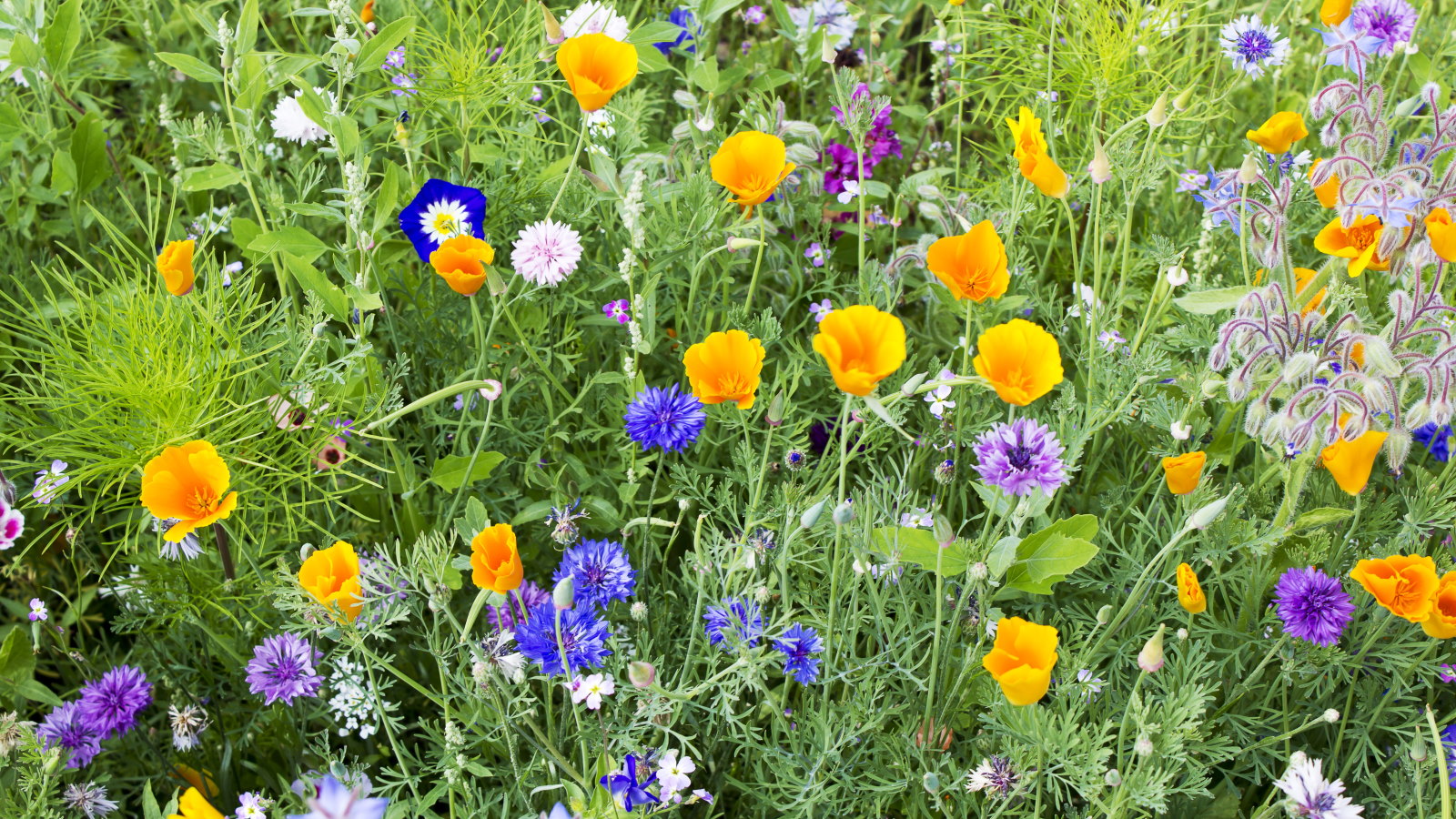
September sees the seasonal transition from late summer into early fall and it is an ideal time to sow seeds. The soil still holds onto the summer warmth and gardens see both a decrease in temperatures and rise in rainfall, creating an ideal environment for outdoor sowings.
Hardy annuals and perennial flowers can be planted in September, either indoors or outdoors depending on the type. Early sowings brings the rewards of earlier blooms next year and it makes planting flower seeds an ideal task for the month, along with planting spring bulbs for blooms throughout late winter and spring.
We look at 7 great flowers to sow in September, along with recommendations for where best to plant the seeds to help ensure they germinate successfully and provide fantastic flowering displays next year.
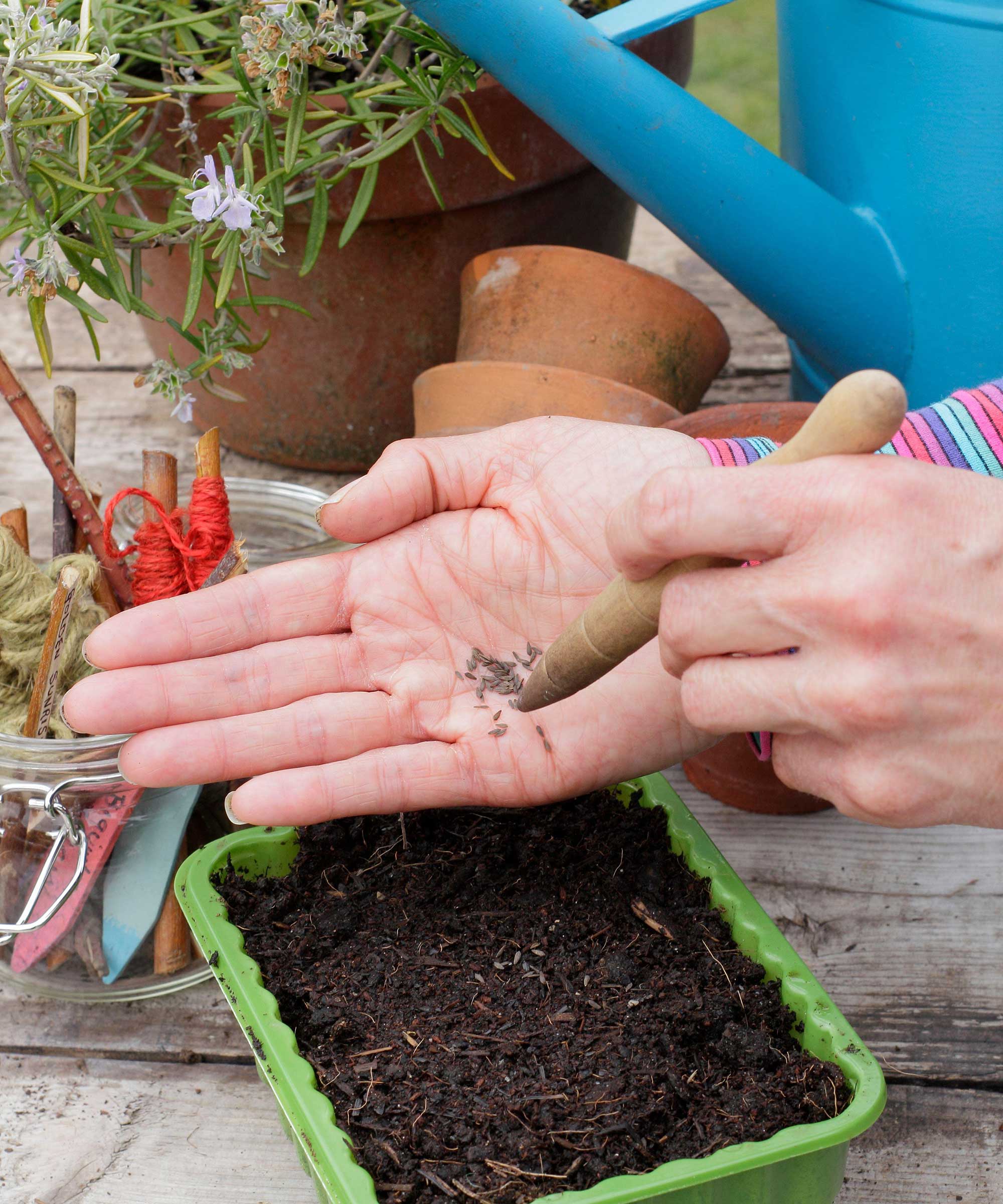
How to sow flower seeds in September
It is not a one-size-fits-all approach for this month regarding sowing. Some flower seeds can be sown outdoors directly into their growing position in September, while others need to be planted indoors or in a cold frame to overwinter and plant out in spring. We explain the best approach, along with other sowing tips, for our pick of 7 flowers to sow in September.
1. Dierama
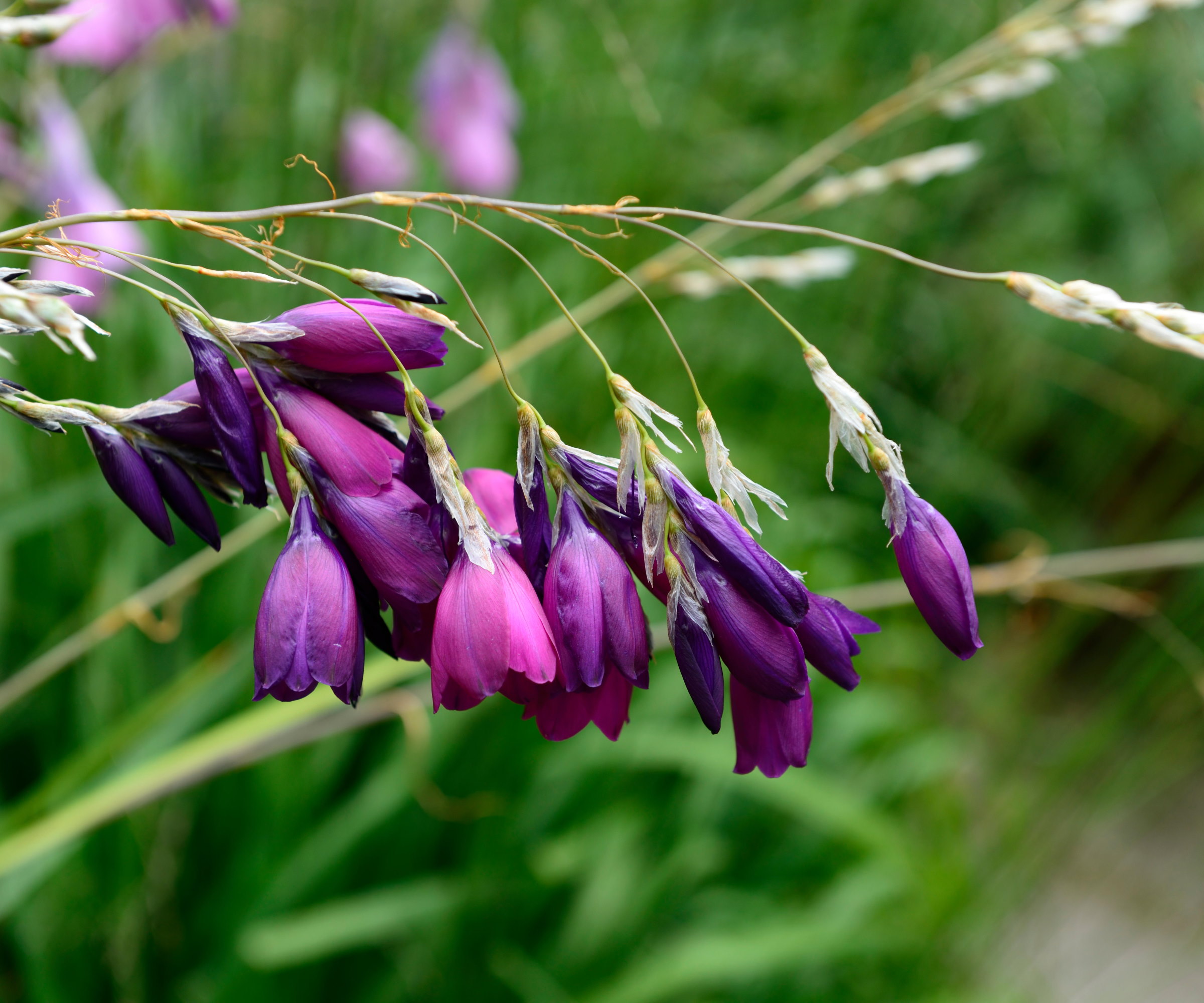
These perennial evergreen or semi-evergreen plants are known as ‘Angel’s fishing rod’ thanks to long-arching stems with hanging bell-like flowers. They are great additions to any flower bed for abundant color and swaying movement in mid-to-late summer - and are especially suitable for drought-tolerant planting ideas.
To boost your collection of dierama, collect seeds from plants in September to sow immediately. Sow the seeds on the surface of pots or trays filled with compost and place them in a cold frame.
It is a task that requires patience, as it can take five years for plants sown from seed to bloom. There is also no guarantee they’ll produce the same flowers as the parent plant if you grow different cultivars of dieramas in your backyard.
2. Echinops
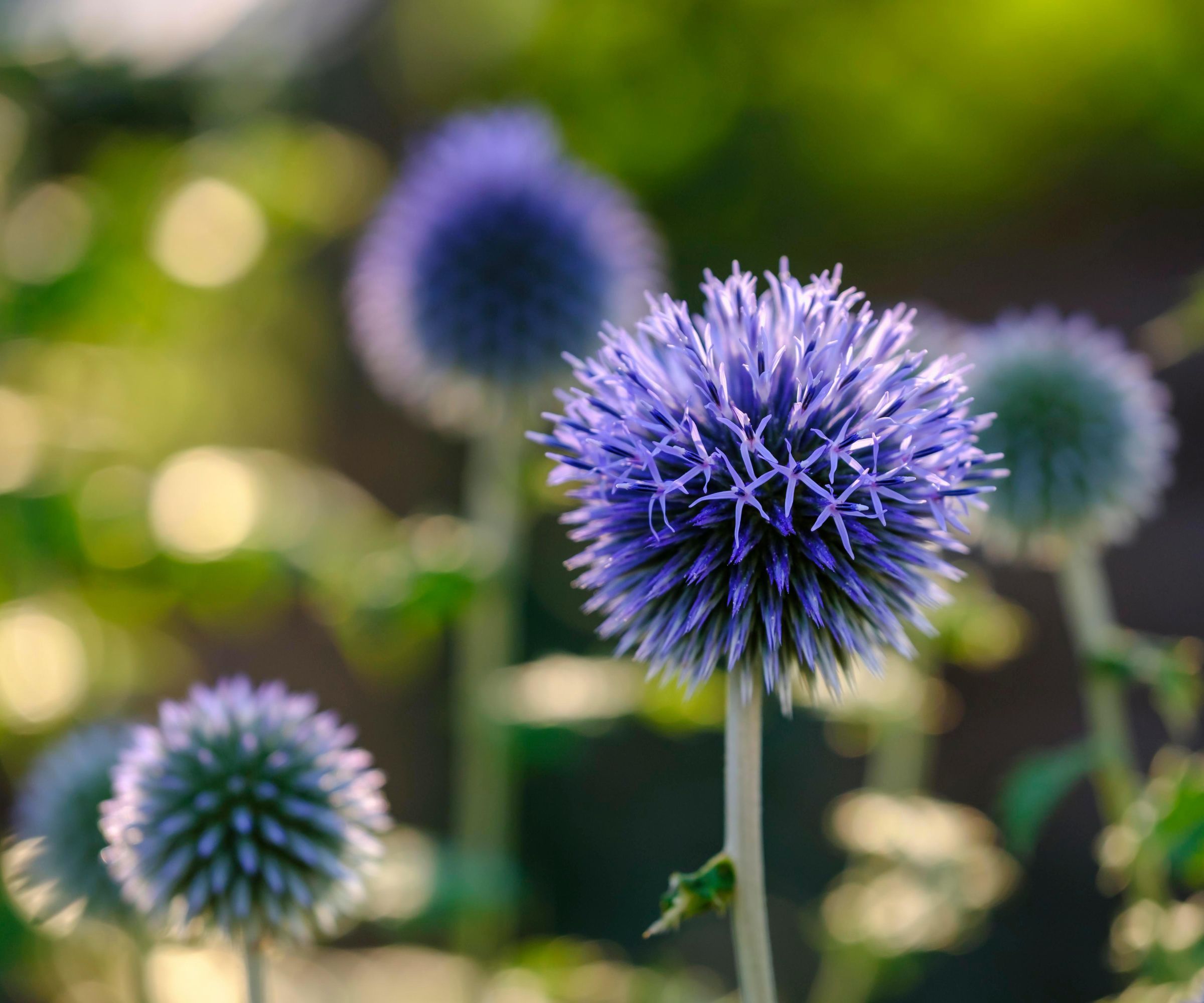
Echinops, or globe thistles, are great plants for flower beds and borders due to their stunning pompom flower heads in shades of blue and silver. The blooms are prolific, the spikey leaves are unique, and plants can reach three feet in height. In addition to that, the flowers are great at attracting bees and other pollinators throughout summer and into fall.
Echinop seeds, available at Amazon, can be sown in spring or fall, you can start in September and sow through to November. Sow seeds indoors and keep them protected over winter, potting up seedlings as they grow to have healthy plants to put outside in spring. Plant echinops somewhere sunny for the best plants and be prepared for a fantastic display.
3. California poppies
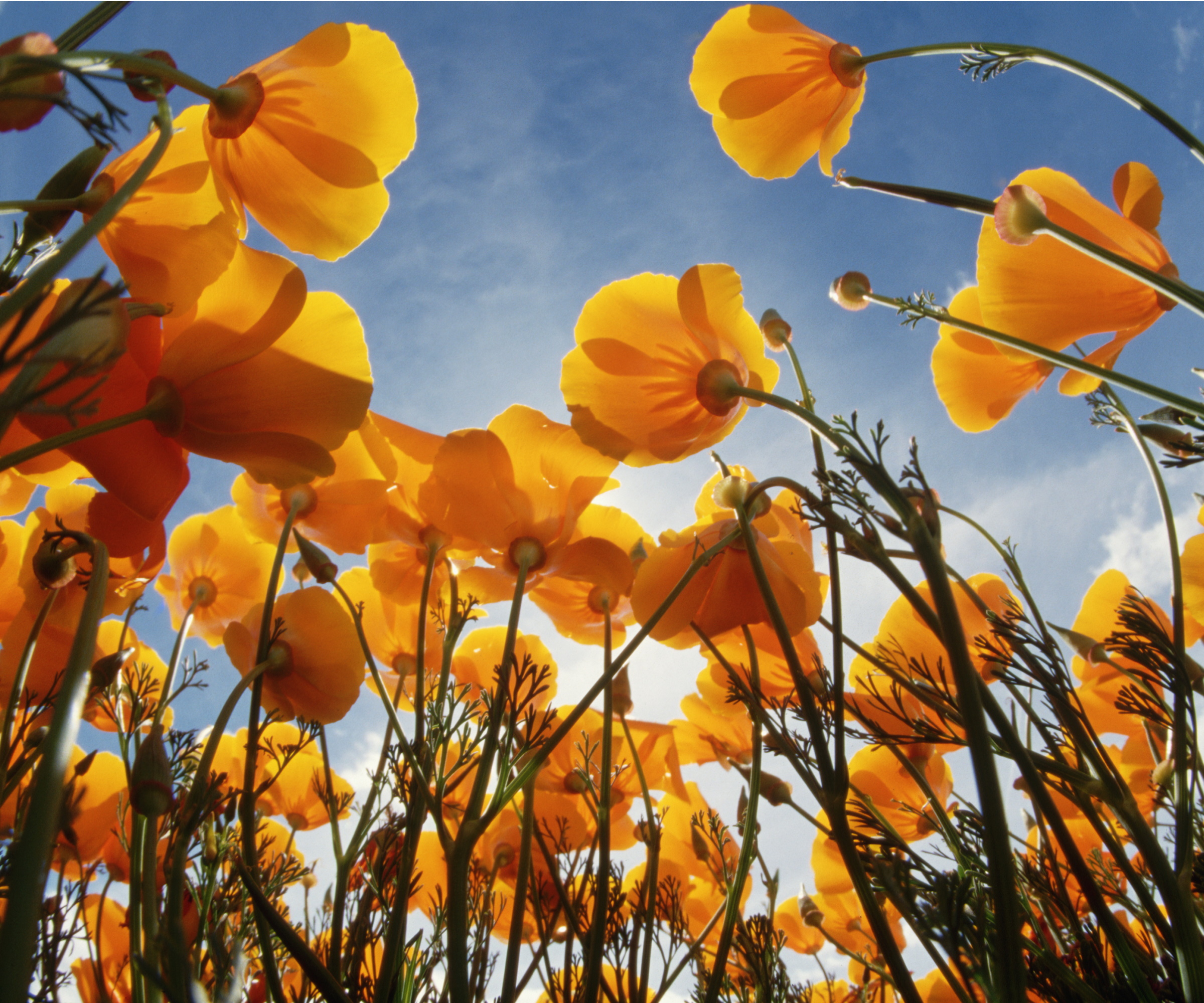
The California poppy is a native plant to the southern US and has been the official state flower of California for over 120 years. They are very easy annual flowers to grow from seed and planting in September will reward you with earlier flowers the following year.
Sow the seeds outdoors directly into the growing position as California poppies do not like root disturbance that comes with sowing indoors and transplanting seedlings outside later. The seeds need to be sown shallowly, around 1/16-inch deep, and will germinate quickly in the moist soils and warm temperatures of early fall.
California poppies are simple plants to grow. They have deep taproots so it can mean little additional watering, apart from extremely dry periods, and they can even thrive in poor soils, so no extra feeding is required to get a display of bright and cheery flowers.
'Mission Bells' is an easy-to-grow variety that produces 12" tall California poppies with 2-3" blooms in a seasonal mix of peach, rose, canary, magenta, white, and bronze
4. Viola

Violas are wide-ranging and highly versatile. They come in a variety of colors to be used in many backyard ideas, from lining borders and paths to container gardens. Violas are ideal plants for winter garden ideas as many varieties bloom throughout the colder months. They are also edible flowers that can be added to salads or used as cake decorations.
To propagate violas from seed, sow the seeds onto the surface of the compost and cover them with a fine layer of more compost or vermiculite. The seeds should germinate quickly and will require potting up into individual containers. Winter-flowering types of violas can be planted out in late fall, or other varieties can be overwintered indoors to plant outside in spring.
Discover the range of viola seeds available at Burpee
5. Cornflower
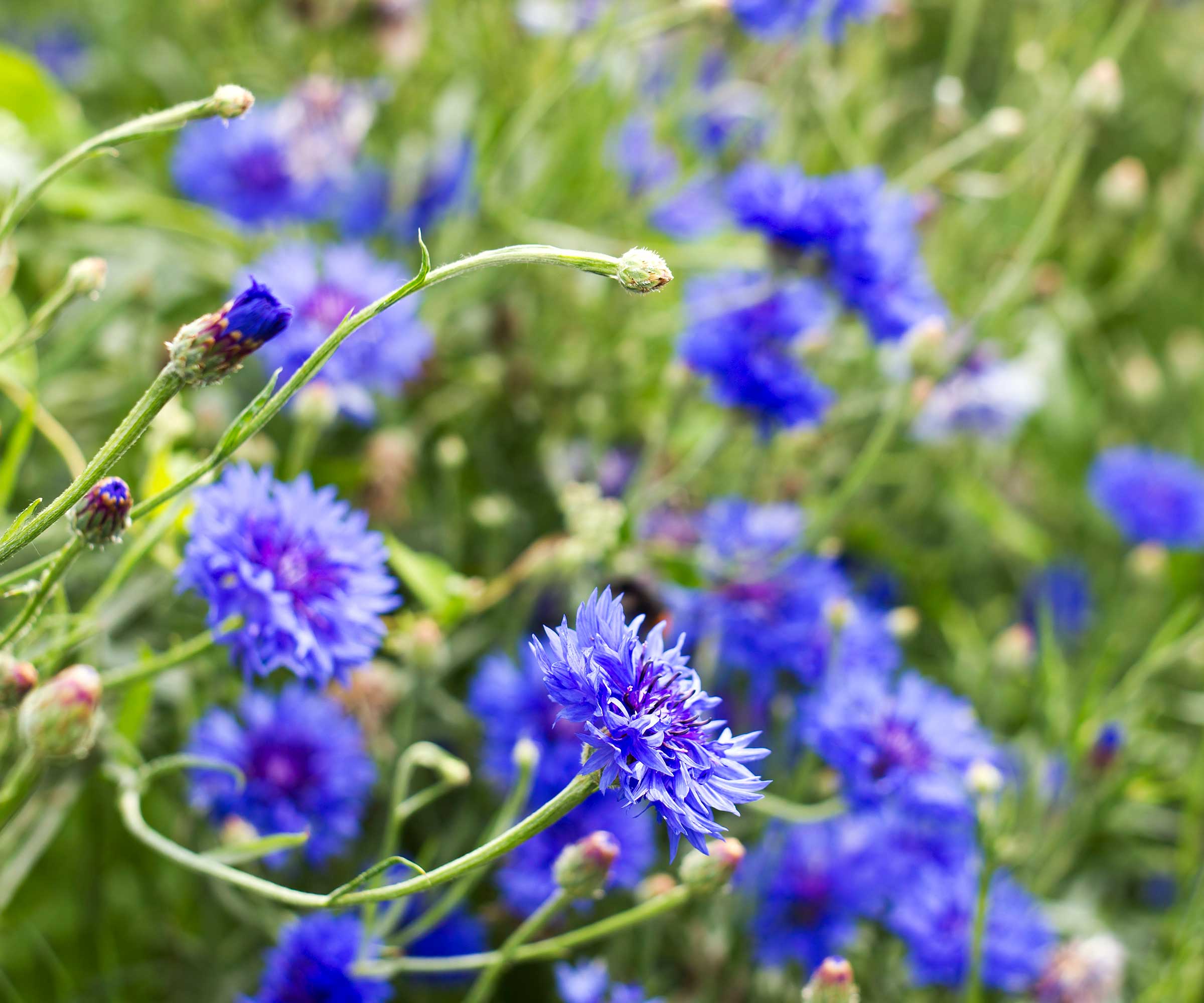
Cornflower is a hardy annual that can be sown directly into the backyard in September for early flowering next year. These easy-to-grow flowers are low-maintenance and great for wildlife gardens. This is because the blooms, which are often blue but also come in red, pink, purple, or white varieties, are loved by pollinators.
Either scatter cornflower seeds into beds and borders and rake the soil lightly to cover them with a thin layer of soil, or sow the seeds into prepared rows if you prefer a more ordered look. The warm soils of fall and regular rain should mean good germination, but pay close attention to watering plants in the absence of rainfall.
Cornflowers will overwinter without too much fuss and you’ll have sturdier plants come spring that will flower from May onwards.
Bachelor's Buttons flower seeds (AKA: Cornflower) mature into a robust 18-24" tall bushy uprights stemming with unique 1" pop-pom blooms in a seasonal mix of purple, white, magenta, lavender, and rose
6. Euphorbia
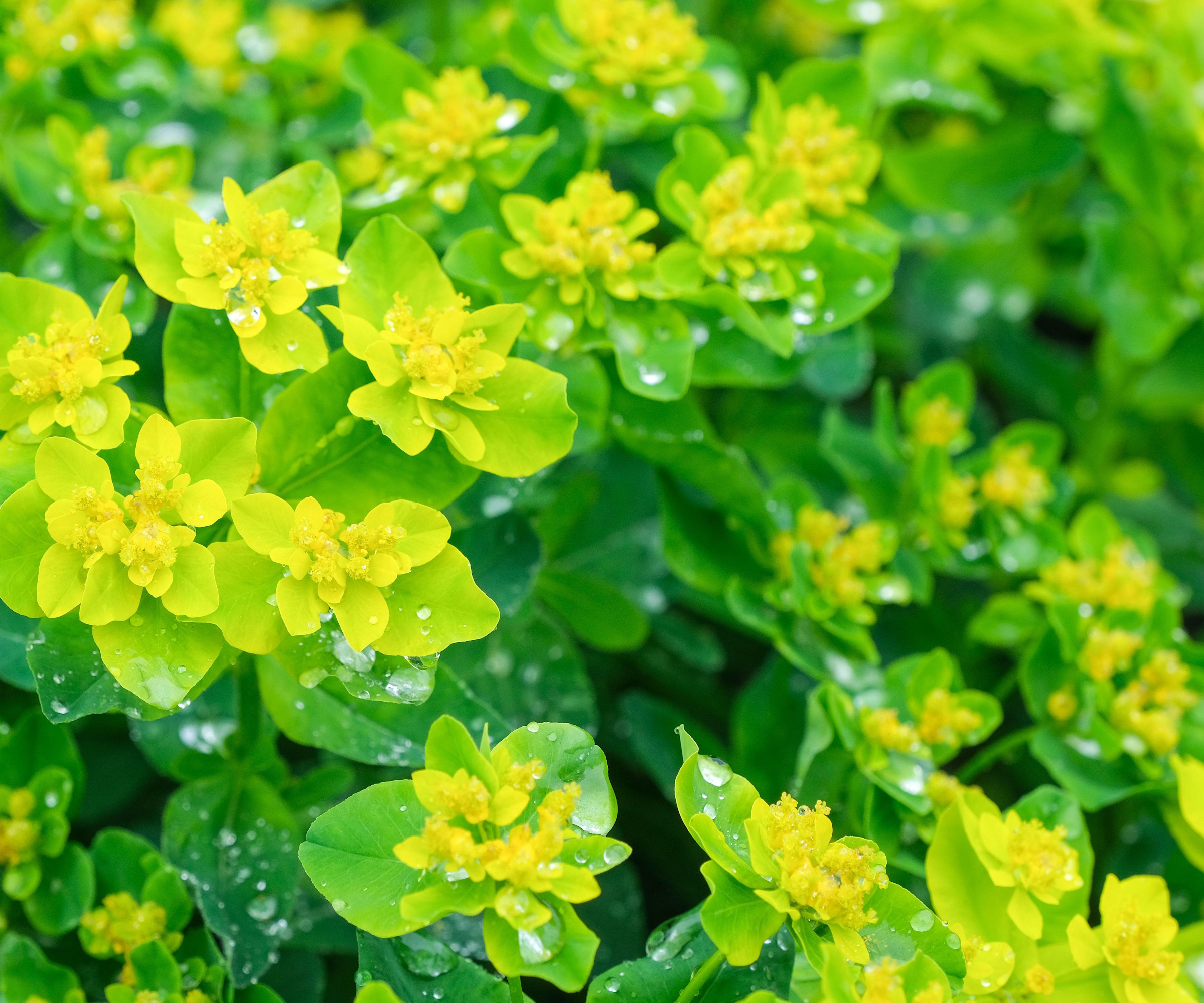
Euphorbias come in many sizes and types. They range from large and showy perennials popular in cottage garden planting schemes to varieties that can make great foliage plants as part of cut flower gardens.
Euphorbia seeds can be started indoors this month, by sowing on the surface of trays filled with seed compost. The seeds want light to germinate, so should be pressed into the soil but not covered. Plants can be overwintered in an unheated greenhouse or cold frame and planted out once the risk of frost passes in the spring.
7. Nigella
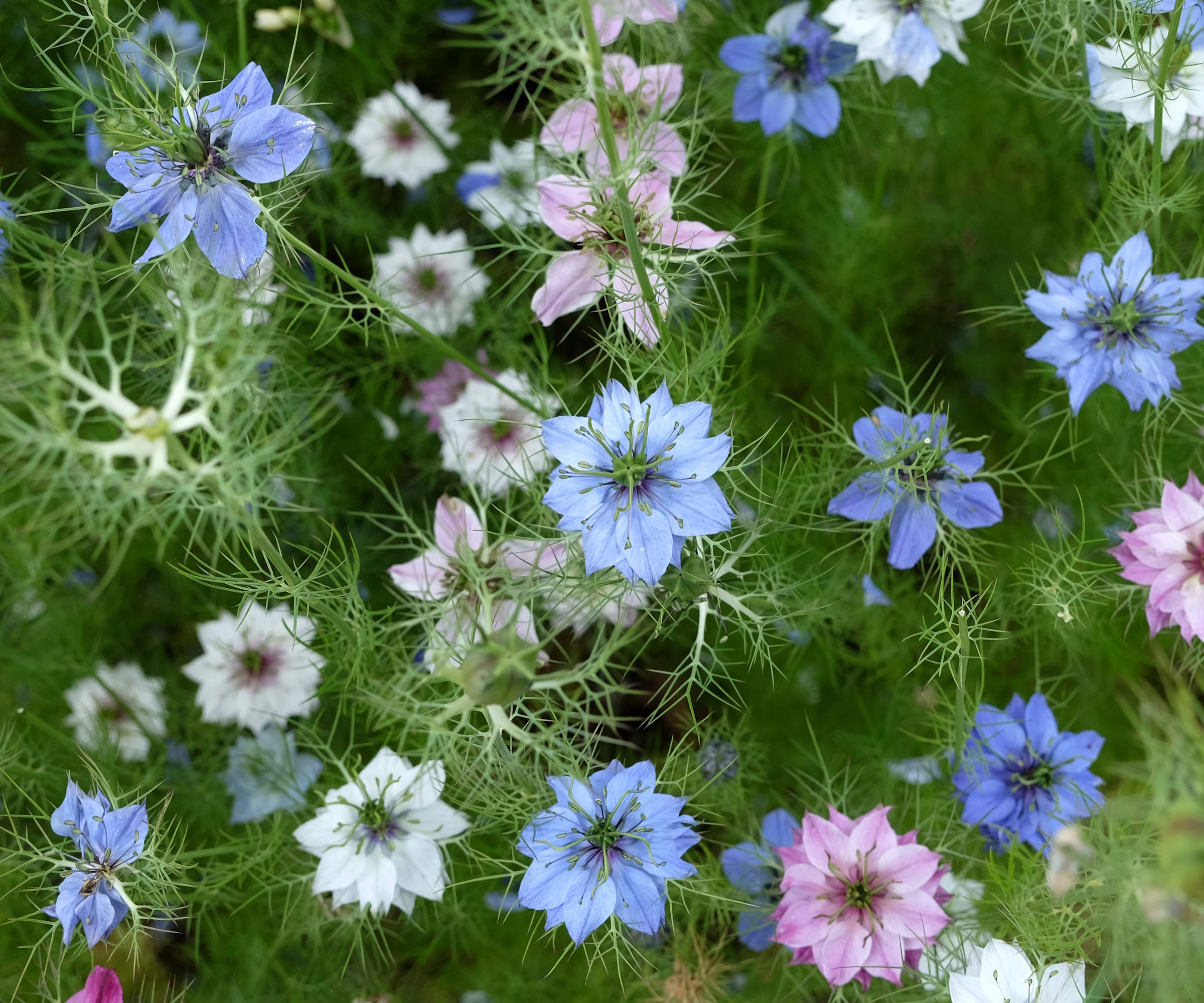
Nigella is a flower to sow in August or September. The fast-growing annual, also known commonly as love-in-a-mist, produces stunning blue, pink, or white flowers and distinctive finely divided bright green leaves surrounding the bloom. Nigella can grow 16-24 inches high and works well filling gaps in borders, being planted en masse for a dramatic effect, or can thrive in containers or hanging baskets.
Nigella will self-seed around the garden, however, you can collect free seeds from plants to sow directly into the soil for early blooms next year. The seeds will germinate quickly and prolifically, so remember to thin them to 6-8 inches apart to give plants the room required to develop. There are many varieties of Nigella to sow, or you can opt for a mixed selection such as these Nigella seeds, available at Amazon, that produce red, white and blue blooms.
FAQs
What wildflower seeds can I sow in September?
September is an ideal time to plant many wildflower seeds. Sowing in September can mimic the natural production of seeds being self-seeded around in wildflower meadows or wildflower gardens in fall. The likes of poppies, cornflowers, cowslip, coreopsis, black-eyed Susan, and yellow rattle can all be thrive from a sowing in September.
Not all wildflowers are suited to being sown this month and prefer to be planted in spring. Always check the recommended sowing dates for any particular wildflower before planting in September if you are making wildflower seed bombs to dispel or creating a wildflower front yard.
To add more blooms to your backyard, there is a wide selection of spring bulbs to plant in fall to bring glorious color to your garden in spring. While many popular spring bulbs are grown as annuals, there are also perennial bulbs to plant this month for brilliant blooms year after year. Combining bulbs with the earlier blooms of flowers sown in September can fill any backyard with color and texture in spring and be a delight for the senses.







